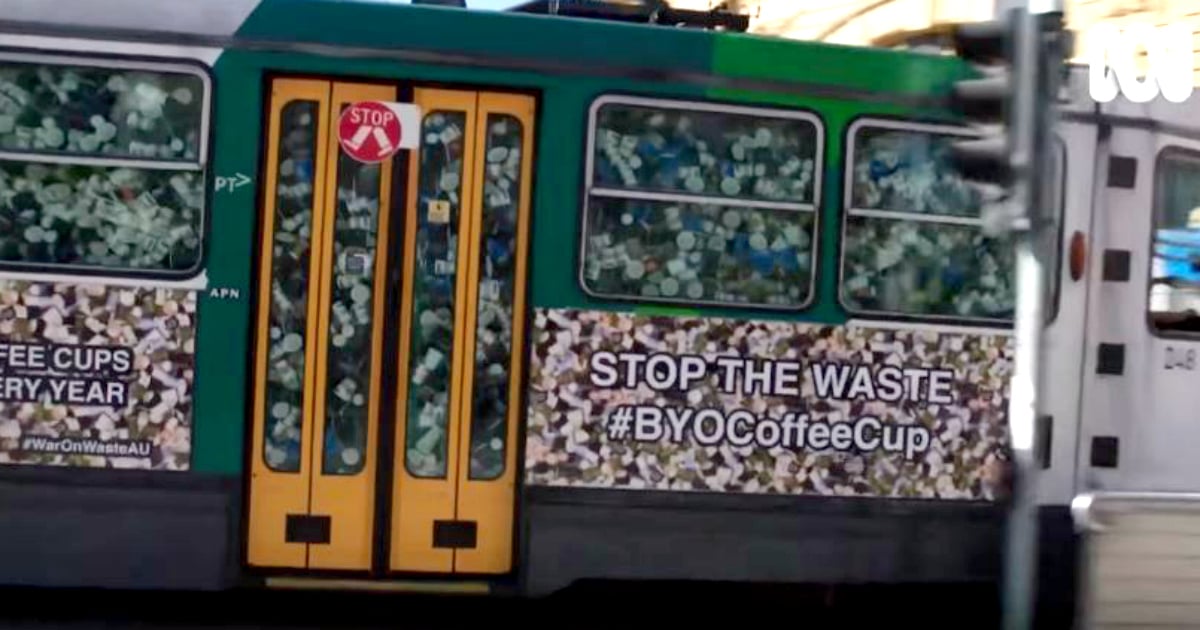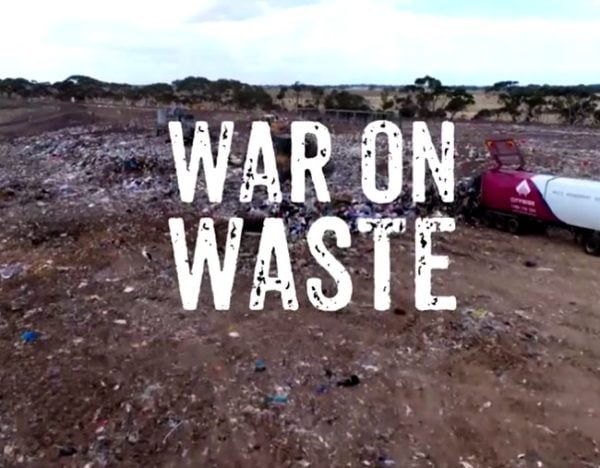

Like many other Australians, every week I head to the grocery store and procure a whole lot of fresh produce that ends up being thrown into the bin come Monday night. All because I never got around to cooking it up.
I buy some fun, cheap new clothes each month to give my wardrobe an easy lift and pound through five to 10 takeaway disposable coffee cups in a bid to get myself through the working week.
I always thought I was just hurting myself (and my bank balance), but after watching ABC’s documentary series War On Waste it quickly became clear just how much my careless attitude towards waste and disposal was actually hurting our country and the environment.
Take the coffee cup issue, for example. When the show’s host, TV presenter and comedian Craig Recaussel, packed a Melbourne tram full of 50,000 disposable cups that end up in landfill, it was a sobering sight indeed. He told onlookers that we throw out more than 1 billion a year, and around 50,000 every 30 minutes. No wonder the #BYOCoffeeCup movement is taking off (reusable cups like KeepCup are genius).





Top Comments
I very rarely throw out food. I work to a meal plan and shop once a week to only buy what we need in the way of perishable goods. I'm happy to pop into the shop to pick up something extra if we run out but mostly there is no waste. I don't understand how people can be throwing out so much stuff!
This just show why Australia is such a mess when comes to recycling and using disposable products. You just DON'T THINK it's something bad, as you wrote, you were thinking that you're just hurting yourself and your bank account. Seriously? Australians are such selfish people they don't care about the environment. And guess what, one day when we'll be practically living in rubbish they'll go like 'aaaaah, I didn't know I have to think about the consequences of my behaviour'. Wake up, people! Don't be dum dum.